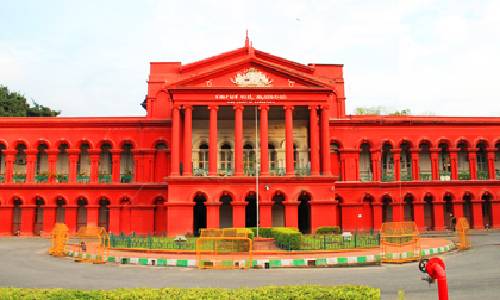
The Karanataka High Court in Shadakshari C.L & others v Santhosha C.A & others. Observed that if the trial court has not given a clear finding regarding the possession of suit property, the appellate court may grant an order of temporary injunction or an order of continuation of the same if it was in operation till disposal of the suit before the trial court.
The two points came up for consideration before the Court in the instant case:-
When an application for temporary injunction is filed in an appeal preferred under section 96 read with Order 41 Rule 1 o f CPC against the decree of the trial court, is it necessary for the appellate court to consider the evidence on record for deciding the application?
Can the appellate court allow the application for temporary injunction merely for the reason that the order of temporary in junction was in force till disposal of the suit?
For the sake of brevity, the Court proceeded to answer both the questions together. It held that foremost a fine distinction exists between an appeal preferred under Order 43 Rule 1 of CPC against an order either granting or refusing to grant an injunction, and an application for temporary injunction preferred in an appeal under section 96 read with Order 41 Rule 1 of CPC against judgment and decree of the trial court.
It further observed that “The court of first instance while deciding an application for a temporary injunction should exercise discretion having regard to prima facie case, balance of convenience and irreparable in jury. In the appeal against such an order, the scope is limited in the sense that if the appellate court finds that discretion is properly exercised and that the findings are not capricious or arbitrary, the appellate court should not interfere with such an order. Even if the appellate court comes to conclusion that another view is possible to be taken, it cannot substitute its views to reverse the order passed by the court of first instance. This is a well established principle and in fact this principle is reiterated in the decision of this court in the case of Lalithaksh i Annadanagowda vs Sadash ivappa Basappa and Another [1983(2) Kar.L.J. 289], a judgment cited by Sri R Vijay Kumar. But if temporary in junction sought in an appeal preferred against decree, the position is slightly different. As is in this case, the plaintiff lost the suit and therefore preferred an appeal against the decree. If he seeks temporary injunction pending disposal of the appeal, in my opinion , the appellate court need not decide such an application in the manner the appellate court decides the appeal preferred under Order 43 Rule 1 of CPC.”
The Court further added that the purpose of granting a temporary injunction is to preserve the status and nature of the property until the dispute is decided on merits. This being the purpose of granting a temporary injunction, a question would obviously arise as to why the appellate court should disturb the status that the trial court has found to be maintained or preserved. An appeal is a continuation of a suit and therefore depending on facts and circumstances of each case, the appellate court may decide to grant or refuse an injunction.

